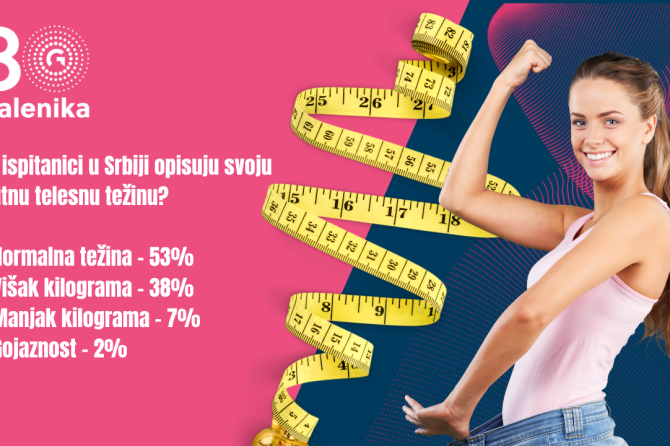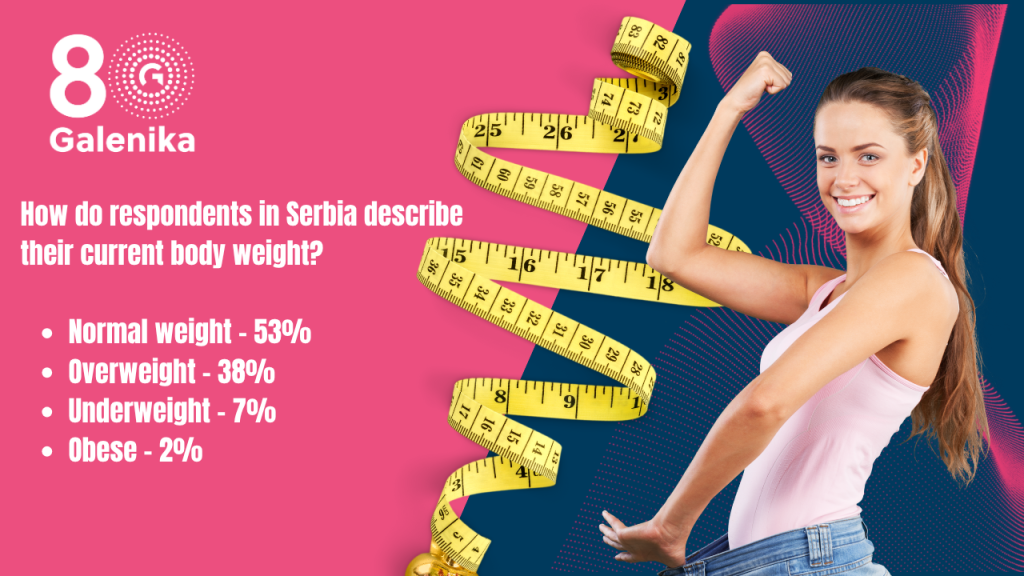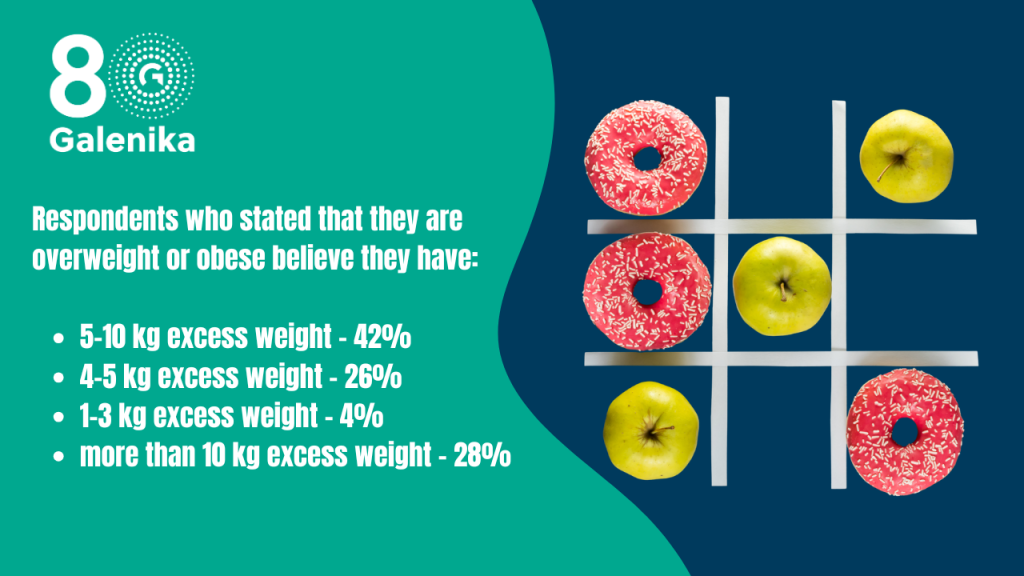
GALENIKA’S RESEARCH REVEALS HOW (DIS)SATISFIED WE ARE WITH OUR APPEARANCE
A new study on body image, physical fitness, and health in Serbia, conducted by the pharmaceutical company Galenika, reveals clear differences in perception between women and men, as well as some concerning findings. Over 40 percent of respondents believe they are overweight or obese. Additionally, one in four people who are overweight is not taking any action to improve their condition.

Women Self-Critical, Men Self-Confident
There is a noticeable difference in the perception of body weight, with men consistently having a better self-image, while women are more self-critical.
The survey results show that 63% of men are satisfied with their appearance, compared to only 54% of women. Nearly two-thirds of men described their weight as normal, while 32% believe they are overweight. In comparison, 46% of women think they have a normal weight, and 45% believe they are overweight.
When estimating their excess weight, 37% of men say they have between five and ten extra kilograms. The same is true for 45% of women. Among all age groups, those with excess weight most often say it ranges 5-10 kilograms. Vojvodina is the region with the highest level of awareness – 42% of its residents report having excess weight.

As expected, the younger generations (ages 18-29) are the most satisfied with their appearance.
Physical Fitness – Room for Improvement
More men than women in Serbia (25% vs. 14%) believe they are in excellent physical shape. Encouragingly, more than half of the respondents aged 30 – 44 are aware that there is room for improvement, describing their fitness level as solid but improvable. The same goes for a little over one-third of the oldest respondents. Interestingly, Belgrade has the lowest percentage of people: only 15% who feel they are in excellent shape, which suggests greater awareness of the importance of physical activity.
Nutrition Matters, But Expert Advice Is Rarely Sought
When it comes to actions taken to lose weight, medically supervised diets are the least common choice. Regardless of the group (by gender, age, education), the percentages do not exceed 2%.
Almost one-third of men take no action regarding their health or weight. Those who do are more likely to choose healthier foods (18%), watch their portion sizes (15%), and engage in cardio exercises (15%). Women pay more attention to nutrition: 22% choose healthy food, 20% monitor portion sizes, and 13% opt for self-directed dieting.
A worrying fact is that many people who are aware they are overweight do not feel empowered to do something about it. As many as 64% of respondents who are obese or consider themselves overweight are not taking any steps to lose weight.
In the year of its 80th anniversary, Galenika has announced a major market innovation: a peptide-based platform developed in collaboration with its sister company EMS in Brazil. These modern peptide-based drugs are intended for the treatment of obesity and diabetes and are already available in Brazil. Their launch is expected in Serbia, the EU, and the U.S. starting in 2026. The particularly good news is that these peptide-based products are boosting global trust in medications for obesity and diabetes.
Leave a reply